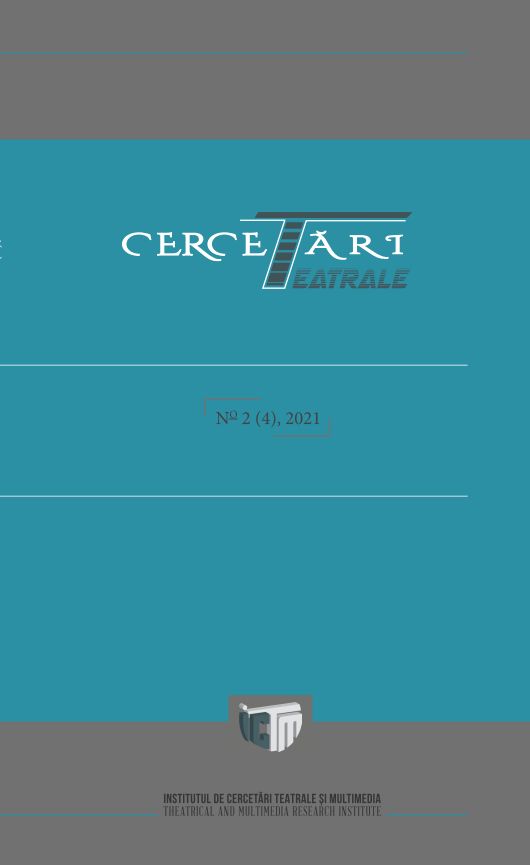De la futurism la spectacolul multimedia contemporan
Elemente în evoluția hibridității formelor artistice
DOI:
https://doi.org/10.46522/CT.2021.02.07Keywords:
new media, contemporary visual languageAbstract
From Futurism to the Multimedia Contemporary Performance. Elements in the Evolution of the Hybridity in Artistic Forms
The mass media and the data processing system are the technologies of our modern society, being born simultaneously and developing simultaneously. I am going back to the invention of photography and the PC’s precursor, continuing with the birth of cinema, to finally arrive at the modern computer, the one that blends all the information and transforms it into numeric data. Among the main influences of the contemporary performance, we find the experiments led by the modernist avant-garde at the beginning of the 20th century – futurism, constructivism, expressionism, dadaism and surrealism – while the first of these movements, the futurism, holds a central position in the contemporary performance’s downward. At the end of the 20th century, computer technologies have become more and more present in theatre, dance and performance, thus shaping new dramatic forms, new types of spectacle and interactive performances. How are the new media technologies changing our visual language and what new aesthetic resources do we find as a result?
References
Birringer, Johannes, Media and Performance: Along the Border, Baltimore, John Hopkins University Press, 1998.
Braun, Edward, Meyerhold on Theatre, London, Methuen, 1969.
Dixon, Steve; Smith, Barry, Digital Performance, a History of New Media in Theater, Dance, Performance Art, and Installation, Mas-sachusetts, The MIT Press, 2007.
Grau, Oliver, Virtual Art: From Illusion To Immersion, Messachusetts, MIT Press, 2003.
Lista, Giovanni, Futurism, Paris, Éditions Pierre Terrail, 2001.
Rutsky, R.L., High Techne: Art and Technology from the Machine Aesthetic to the Posthuman, Minneapolis, University of Minnesota Press, 1999.




